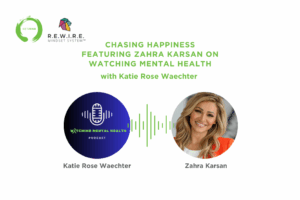To maintain our physical and mental well-being, sleep is a necessary part of the equation. Despite its importance, a significant number of people are frequently sleep-deprived and frequently find themselves drowsy during the workday. It’s possible to have a better night’s sleep, enhance your health and mental well-being by trying the following methods. We’ve listed a few tips to sleep better and be more productive during the day with these simple strategies.
These tactics can be overwhelming for many people to implement. Keep in mind, however, that you can start small and gradually build up to a healthier sleep routine, which is also called sleep hygiene
Optimum Sleep Routine
Taking control of your daily sleep pattern is a necessary first step toward improving your sleep quality. To begin utilizing your schedule to your advantage always,
Plan your sleep time: If you want to ensure that you get the required amount of sleep each night, you need to plan for that time in your calendar. Work backward from your regular wake-up time to determine a target bedtime. Before going to bed, allow yourself some extra time to prepare for sleep.
Take Care With Naps: To get better sleep at night, take care with naps. Too lengthy or too late a nap might mess up your sleep pattern and make it difficult to fall asleep. The optimal time to nap is 20 minutes after lunch.
Adjust Your Sleep Schedule Gradually: When changing your sleep schedule, it’s preferable to do so gradually and with a maximum variation of 1-2 hours every night. This allows your body to adjust to the changes, making it easier to stick to your new routine.
Mandatory Morning Routines:
Begin the day with a little meditation: Start your day off right, by taking a few moments to feel peaceful and set your intentions for the day. Spend a few moments on gratitude and then focus on how you want to feel instead. Instead of waking up and beginning to worry about the day ahead, consciously make the choice that all will be well and so will you.
Daily Exercise: Regular exercisers sleep better at night and are less drowsy during the day. Regular exercise also reduces the symptoms of insomnia and increases the amount of time spent in the deep, restorative periods of sleep.
Establish a Consistent Wake-Up Time: It is nearly impossible for your body to develop a healthy sleep schedule if you are continuously waking up at irregular times. Establish a wake-up time and adhere to it, even on weekends and other days when you may be tempted to sleep in.
Creating a Mindful Bedroom and Bedtime Routine:
Avoid Disruptive Light Exposure: Excessive light exposure might disrupt your sleep and circadian rhythm. Over-the-window blackout curtains or an eye mask can help block out light and prevent it from interfering with your sleep.
Disconnect From Devices: Tablets, smartphones, and computers can keep your head connected, making it difficult to completely unwind. Additionally, the light from these devices can reduce your natural melatonin production. Earplugs or headphones music can be used to block out unpleasant sounds while you sleep. Disconnect for 30 minutes or more before going to bed, if possible.
Cultivate Peace and Relax: A key component of creating a sleep-positive bedroom is minimizing noise and relaxing yourself. If you are unable to eliminate surrounding noise sources, consider masking them with a fan or white noise machine. Additionally, mindful sleep meditation can help you sleep deeply with a pleasant mindset.










